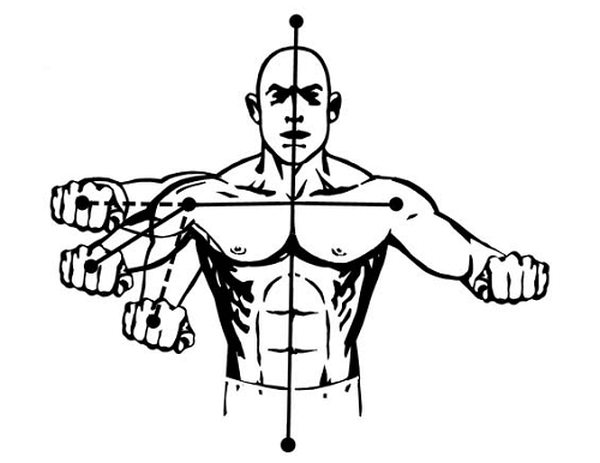Recent pain while training

sihornsby
Posts: 5 Member
I wonder if anyone can help me.
I've recently started to clean bulk and increased my weight when training.
Last week while performing a bench press (20kg heavier) I started to develop pains in my left lateral muscle and the upper left side of my back.
My technique is the same as before,
shoulders pressed back together trying to get my blades to touch and my buttocks are clenched tight during the press.
I thought the pain was down to the extra weight but again today when I've done a chest day, the same pain has returned while bench pressing.
Any help or suggestions please?
Thanks
Si
I've recently started to clean bulk and increased my weight when training.
Last week while performing a bench press (20kg heavier) I started to develop pains in my left lateral muscle and the upper left side of my back.
My technique is the same as before,
shoulders pressed back together trying to get my blades to touch and my buttocks are clenched tight during the press.
I thought the pain was down to the extra weight but again today when I've done a chest day, the same pain has returned while bench pressing.
Any help or suggestions please?
Thanks
Si
0
Replies
-
Are your elbows tucked correctly around 45', rather than being too high towards the shoulders?
If your sure your form is right, I'd switch to an alternative exercise until you can bench without pain.2 -
It could be that there to high yes, once this new pain subsidised I'll try again, remembering to tuck my elbows.
Thanks0 -
I had a similar issue a few weeks ago. Went to physio who said I had a knot around that area which formed into a slight shoulder strain. Advised me to reduce the weight by 25% and reduce the range of motion by 25% as well as not going below parallel for the bench press. Did that for a few weeks. Everything is good now. Not saying what you have is what I had but see if that helps or maybe go to a physio to get it checked out.1
-
First off, go to the physio - we are a bunch of randoms on the internet and we can only offer advice based on experience. That being said, I have a couple of ideas.
- Stretch your pecs (door jamb stretch, hang from a bar, every day and multiple times a day
- Make sure you are not using your shoulders in the movement. That means elbows are tucked in at 45 degrees, and the bar touches your lower chest or upper abs
- This in conjunction with retracting your scapulas (then mental cue of putting them in your back pocket) should help
- Do adequate back work. Heavy Rows, Seated Cable Rows, Dumbbell Rows, Pull ups, Face Pulls, etc. are all required for a healthy chest. If your chest muscles are too much stronger relative to your back, your shoulders will rotate internally and if you do this for too long, you will get shoulder pains. You can tell this is the case if your thumbs naturally rotate into your body too much when you are standing relaxed. Climbers have the opposite problem with too strong a back relative to the chest, and their thumbs are rotated outwards as a result.
- /list]
Look at the below picture. Assume these are the positions at the bottom of the bench, when the bar touches your chest.
The top position is what people think would work, and it should be the most mechanically efficient lift. That is not the case due to the shoulders. If you lift like that, you will have shoulder impingement. Do not lift like this.
The middle position is the correct one for this lifter. Elbows tucked ensures the chest gets the majority of the workload. Whether the bar is at the bottom of the chest or the top of the abs depends on the limb lengths of the lifter.
The bottom position is a "close grip bench press" used to train the triceps. It's a good accessory work if you have a hard time locking the lift out (i.e. it trains the top half portion of the bench).
1 -
Thank you all for your advice and help.
I'm going to see a physio 1st then i'll adapt my bench press accordingly.
Again, thanks ☺0 -
bench is an easy exercise to hurt yourself on. Don't be afraid to deload to work on form. I suggest people get a 1-on-1 consultation with a powerlifting trainer (find a powerlifting gym, not just some guy at a fitness gym).0
This discussion has been closed.
Categories
- All Categories
- 1.4M Health, Wellness and Goals
- 398.2K Introduce Yourself
- 44.7K Getting Started
- 261K Health and Weight Loss
- 176.4K Food and Nutrition
- 47.7K Recipes
- 233K Fitness and Exercise
- 462 Sleep, Mindfulness and Overall Wellness
- 6.5K Goal: Maintaining Weight
- 8.7K Goal: Gaining Weight and Body Building
- 153.5K Motivation and Support
- 8.4K Challenges
- 1.4K Debate Club
- 96.5K Chit-Chat
- 2.6K Fun and Games
- 4.8K MyFitnessPal Information
- 13 News and Announcements
- 21 MyFitnessPal Academy
- 1.6K Feature Suggestions and Ideas
- 3.2K MyFitnessPal Tech Support Questions



